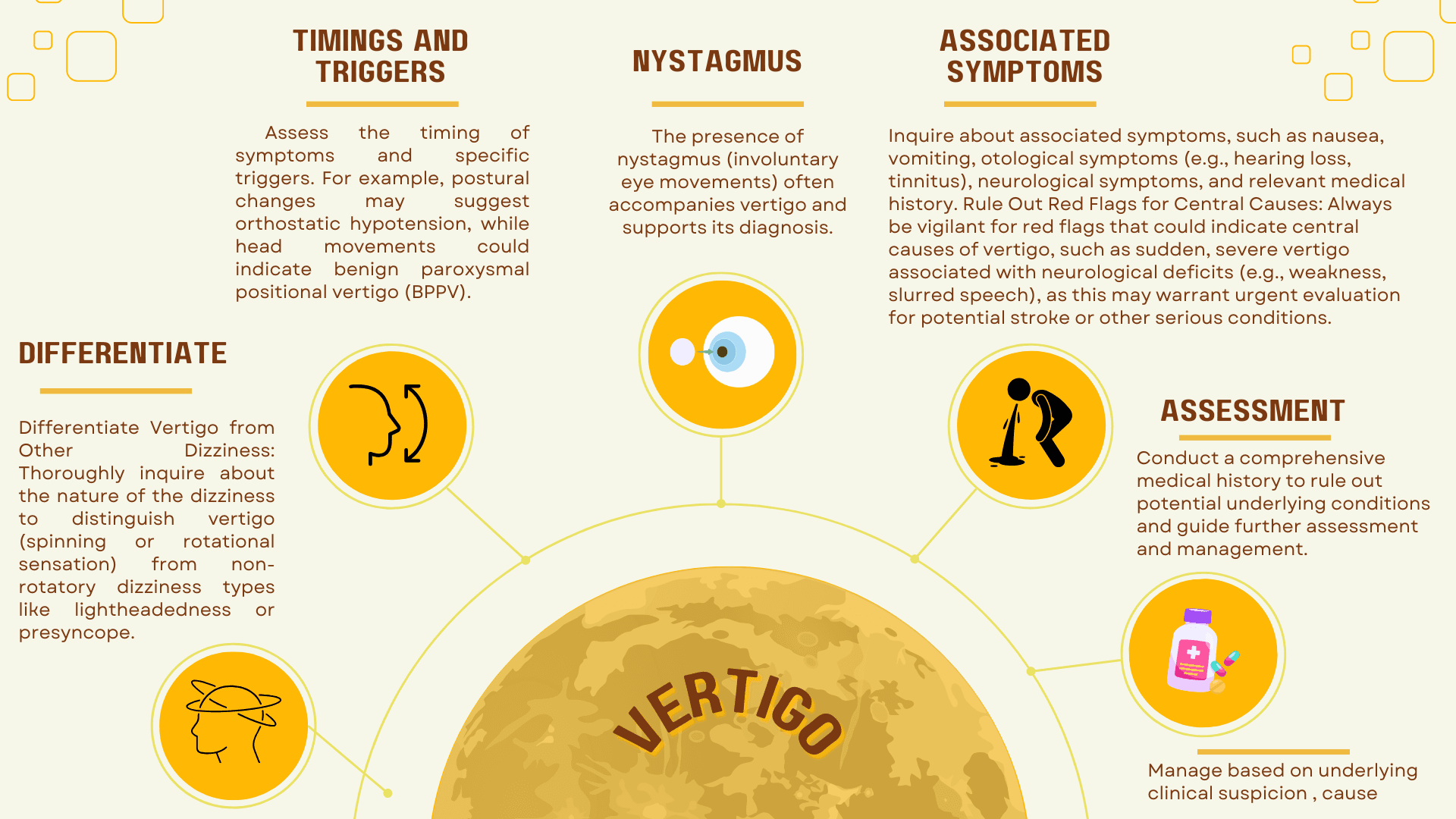Download A4Medicine Mobile App
Empower Your RCGP AKT Journey: Master the MCQs with Us!

Vertigo is a prevalent complaint encountered in both primary care settings and emergency departments. It manifests as a distressing sensation of motion, often characterized by a spinning or rotational feeling. Distinguishing vertigo from other forms of dizziness, such as lightheadedness associated with presyncope, is crucial for accurate diagnosis and management[1]. Vertigo can affect individuals of all ages, with underlying causes varying based on age groups. In younger patients, middle ear issues are commonly responsible, while in the elderly, special attention is warranted due to the increased risk of falls and related complications.
When assessing a patient with vertigo, it is essential to elicit detailed information about their symptoms, focusing on aspects like timing and triggers. Understanding the nature of the symptoms can aid in pinpointing the underlying cause.
| Common Causes of Vertigo | Presenting Features |
|---|---|
| Benign Paroxysmal Positional Vertigo (BPPV) | ♦ Brief, intense episodes triggered by specific head movements (e.g., turning in bed) ♦ No associated neurological symptoms ♦ A common cause of vertigo |
| Meniere's Disease | ♦ Recurrent vertigo attacks lasting 20 minutes to several hours ♦ Sensorineural hearing loss, tinnitus, aural fullness. ♦ Sudden and severe attacks of vertigo are often associated with nausea & vomiting |
| Vestibular Neuritis | ♦ Sudden... |
Try our Free Plan to get the full article.